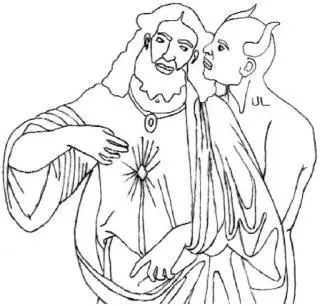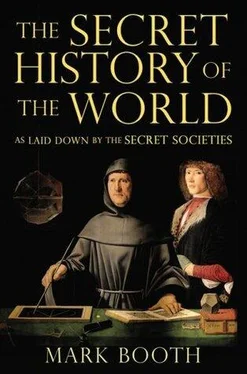As a young man Gandhi described himself as ‘in love’ with the British Empire. Being naturally good-hearted he saw the best in the upright and fair-playing Britons who administered his native country as a colony.
But as he matured, he began to see a deeper reality. Beneath the much-vaunted fair play, he saw, for example, the unfairness of the tax burden from abroad and above all India’s lack of freedom to determine her own destiny.
Influenced in part by the philosophy of disobedience of the American Transcendentalist Henry Thoreau and by the art and social critic John Ruskin, Gandhi set about turning the world upside down and inside out.
In 1906, at the age of thirty-six, Gandhi renounced sex with his wife. His spiritual discipline involved daily work on a hand-spun spinning wheel, partly to encourage a method of weaving cloth that would provide employment for the poor, but also because he believed that as he worked on the cloth he was also working on his own vegetable body. If he could master his body in its different dimensions, he could develop what he called soul force .
He believed that the cosmos is governed by truth and by the laws of truth and that, by acting in accordance with these laws, an individual would gain Satyagraha, the force of truth and love .
For example, if you trust your opponent without fail, you will eventually influence him to act in a trustworthy way — both by means of a psychological influence, but also, crucially, by means of a supernatural one. Similarly, if attacked, you should try to be free from all thoughts of anger and hatred against your assailant. Follow this philosophy, Gandhi taught, and ‘you will be free of fear of kings, people, robbers, tigers, even death’.
In the upside down thinking typical of the secret societies, Gandhi blamed Indians not Britons for the occupation of India, pointing out that 100,000 Britons would not be able to control three hundred million Indians unless they went along with it. Indian cotton was being exported to Britain, to the textile mills of Lancashire, then sold back to India at a profit to Britain and a loss to India. Seated at his spinning wheel, he said, ‘It’s my certain conviction that with every thread I draw, I am spinning the destiny of India.’
On 26 January 1929 he asked people to observe Independence Day in towns and villages throughout India. He asked for the boycotting of law courts, elections and schools. He also chose to challenge the British government’s monopoly on salt manufacture, which meant that Indians had to pay the British for salt, even though it lay in open abundance around their own coast. In March 1930 the sixty-year-old Gandhi set off, staff in hand, on a twenty-four-day walk to the sea. Thousands joined him. Finally he waded into the sea for ritual purification, then leaned down and scooped up a small handful of salt. The crowd acclaimed him ‘Deliverer!’
Gandhi’s soul power was such that when he met armed soldiers, they would lower their weapons. Hindus and Muslims forgave each other in his presence.
The imprisonment of Gandhi and his hunger strikes sapped the moral will of the British government, leading to independence for India in 1947. The largest empire the world had ever seen melted away with an unprecedented lack of bloodshed.
In this history we have followed the lives of great leaders such as Alexander the Great and Napoleon. In a sense Gandhi was greater than any of them. Soul force, he believed, could deflect the greatest military power, because the intention behind an action could have greater and more widespread effects than the action itself.
Gandhi was a devout Hindu but he lived according to the deeper laws as laid out in the Sermon on the Mount. Talking to hostile Hindu and Muslim factions, he argued that someone whose spirit of self-sacrifice did not go beyond his own community eventually became selfish and made his community selfish. The spirit of self-sacrifice, he said, should embrace the whole world.
Like St Francis, he loved the whole world.
28. WEDNESDAY, THURSDAY, FRIDAY
The Anti-Christ • Re-entering the Ancient Wood • The Maitreya Buddha • The Opening of the Seven Seals • The New Jerusalem
IT IS ONLY IN THIS OBSCURE SUBURB of history, where nothing miraculous ever seems to happen and no great geniuses live, this age when the standards of education of the educated classes is in steep decline — it is only in this time and place that people have held matter-before-mind beliefs. In all other places, at all other times, people believed the contrary. They would have found it just about impossible to imagine how anyone could believe what we do.
According to the secret history this change has been caused by a change in consciousness. In the esoteric account consciousness changes much more quickly and in a much more radical way than in the conventional account. I hope this book has gone some way to showing that if people believed in a mind-before-matter philosophy a few generations ago, it was not because they’d weighed up the arguments on both sides and plumped for idealism. It was because they experienced the world in an idealistic way.
Consider, finally, how your consciousness is different from your parents’ consciousness. Yours is probably more liberal, more sympathetic, more able to appreciate the point of view of other races, classes, gender, sexual tastes and so on. In some ways you are probably more aware of yourself. Because Freud’s ideas have percolated down so thoroughly, you are less likely to remain unaware of underlying sexual motivations for your impulses. Or of commercial motivations — because of Marx. You are probably less repressed, less fearful of authority, more questioning and have less strong family ties. You probably tell lies more readily, have weaker powers of concentration and less determination to stick at boring tasks for the sake of a long-term goal. Although popular culture pays much lip service to romantic love, you, along with most people, probably don’t believe in it wholeheartedly any more. Few would want or expect to stay with the same sexual partner for a lifetime. In fact, as Rilke suggested in The Notebooks of Malte Laurids Brigge , part of you wants to run from the responsibility that being loved brings.

The Antichrist by Luca Signorelli, a detail from the San Brizio Chapel in Orvieto Cathedral. Signorelli worked with Botticelli on the Sistine Chapel and was also, like Leonardo, a member of the studio of Verrocchio, whose own work is replete with esoteric references. Mayan astronomer-priests pinpointed the incarnation of Lucifer to 13 August 3114 BC, tying in closely with Hindu traditions of the dawn of the Dark Age. These same priests predicted a similar turning point in history, the closing of one great cycle and the start of another, on 22 December AD 2012.
Our consciousness, then, is different from our parents’ consciousness and it is also probably very different from our grandparents’ consciousness. Project this rate of change back into history and it becomes easy to see how only a few generations ago everyday waking consciousness might have been like the form of consciousness we experience in dreams. It also raises the question:
How will our consciousness change in the near future?
In the mind-before-matter view, mind created the physical universe precisely with the aim of nurturing human consciousness and helping it to evolve.
So what does it say about how our consciousness will change?
ACCORDING TO ESOTERIC CHRISTIANITY, Jesus Christ lived on earth in the middle of the history of the cosmos. His life represents the great turning point in history. Everything after it mirrors what happened beforehand. So we are experiencing the great events of pre-Christian times in reverse order and our future development will take us through earlier stages in reverse order.
Читать дальше













